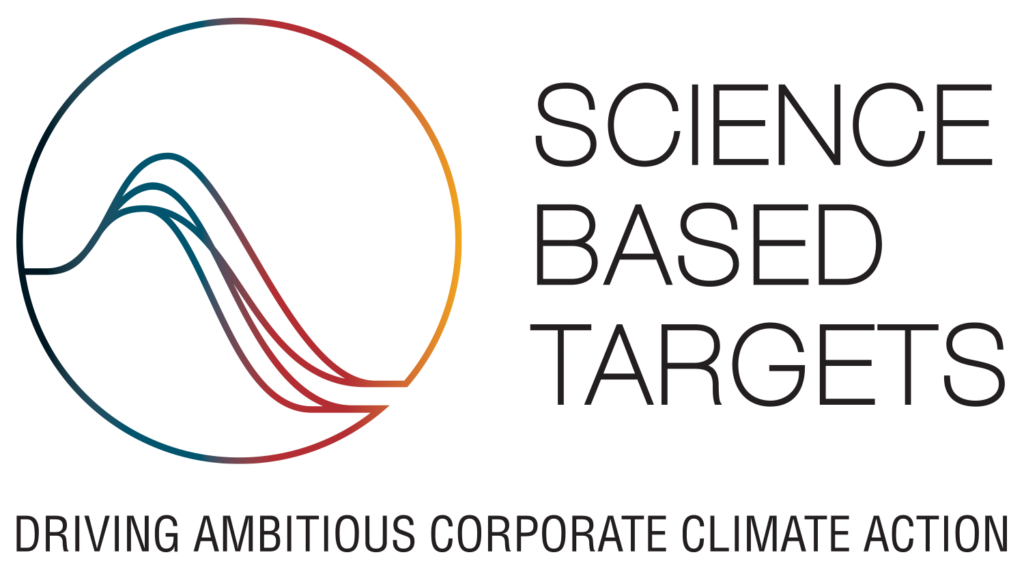The Otto Group is setting itself a series of new ambitious targets to combat the climate crisis. By 2031, the Group aims to reduce its greenhouse gas emissions by 42%, in absolute and real terms, compared to 2021. They have already reached their first milestone: at the end of February, the Science Based Targets Initiative (SBTi) officially validated their climate targets, therefore, confirming that their goals are of a high standard that is backed by science and work towards the 1.5-degree target established by the Paris Climate Agreement.
For many years, the Otto Group has been working continuously to scale down its ecological footprint. With the SBTi validation, the Group has now reached an important milestone. This represents a unique selling point for the Group. The SBTi validation is evidence that the organisation has put in continuous effort to go above and beyond integrate their climate goals into their business, giving the Group a competitive edge. In addition to the SBTi targets, the Group has set a long-term goal to attain net zero emissions1 along the entire value chain by 2045 at the latest.

“I am really proud of our efforts to pursue and intensify our climate targets despite all the economic challenges in the online market. Having our ambitious climate targets validated is a significant milestone for the Otto Group and demonstrates our determination to play a leading role in the sustainable transformation of the industry,” explains Alexander Birken, CEO of the Otto Group.
“We have to act, and want to, if our company is to remain fit for the future. Our commitment to climate protection goes beyond mere targets, though. It is a promise to future generations and a clear commitment to sustainable change in our economy and society,” Birken added. “However, we are aware that we in the Otto Group cannot achieve the goal of a 1.5-degree society alone. We need a collaborative approach in which business, politics and society – also on a global scale – work together on concrete measures.”
The Group’s history shows that it is possible to reduce emissions. Between 2006 and 2020, the Group more than halved its carbon output. In addition, by 2023, CO₂e emissions decreased by more than 20% compared to 2018.
“We have achieved our climate targets to date by consistently avoiding and reducing emissions, not by offsetting. These measures in the fight against climate change were right, important and successful,” explains Prof Dr Tobias Wollermann, Otto Group Vice President of Corporate Responsibility. “The new targets should therefore be seen as an on-going development of our long-standing, successful climate protection strategy and a necessary response to the worsening climate crisis.”

Previous climate protection measures primarily focused on the Group’s specific operations, such as their locations, procurement and distribution logistics, employee mobility, and digital activities. The new SBTi climate target expands the scope of the Group’s operations that will be assessed. The targets aim to cover the entire value chain – from the cultivation of raw materials and production to a product’s lifespan and disposal. Widening the scope is evidence that the new targets are more ambitious, as well as signifying a need to implement more stringent climate protection measures.
The development of the Science-Based Target was challenging for the Group. “It was a tour de force,” summarises Tobias Wollermann. “After an intensive development phase of over two years – getting many stakeholders from Group companies and Otto Group Holding involved – our collaborative Otto Group Science Based Target was officially validated by the SBTi at the end of February. This is undoubtedly a major milestone for the Otto Group’s climate protection activities. Of course, we want to be part of the climate solution and contribute towards limiting global warming, and the new SBT targets endorse this.”

The Group is currently working on implementing practical processes and incorporating their business partners to align their objectives and activities with the 1.5-degree target. The particular focus here is on improving the energy efficiency of production processes in the upstream value chain and promoting the use of renewable energies.
In 2023, the Group launched a pilot project in Bangladesh, where they supported factories in developing energy efficiency, energy management, and renewable energy measures. Going forward, the Group plans to implement processes to cut emissions during the product lifespan, such as increasing the energy efficiency of electrical appliances and encouraging customers to switch to green electricity. Furthermore, the Group continues to work on shifting the transportation of goods from air to ship or rail, as well as electrifying home deliveries. At their own premises, they are pushing to increase energy efficiency and completely switch to green electricity. Additionally, the Group highlighted that the increased use of climate-friendly materials will be essential to achieving their targets.
The Science Based Targets Initiative is a collaboration between the CDP (formerly known as Carbon Disclosure Project), the United Nations Global Compact, the World Resources Institute, and the Worldwide Fund for Nature (WWF). It supports companies in aligning their business strategies to comply with the 1.5-degree target of the Paris Agreement. In addition, the SBTi not only provides companies with technical support and expert resources to formulate science-based climate targets but also brings together a team of experts to provide independent assessment and validation of these targets. More than 7,700 companies worldwide are currently members of the SBTi, and more than 4,000 have successfully validated their climate targets.
As a member of the Group, Otto International is also dedicated to working towards a more sustainable sourcing world. We will continue to implement processes and technologies that contribute towards the Group’s climate goals and change our industry for the better.
Check out our news channel and follow us on LinkedIn for more business updates.
1Net zero emissions mean that a company cuts its overall greenhouse gas emissions by a minimum of 90% and offsets the remaining 10% through measures that remove CO2 from the atmosphere. This is achieved through cutting carbon naturally, for instance through systems that absorb more carbon than they release, such as forests, soils and oceans, or special carbon sequestration technologies. The aim is to manage our carbon footprint in such a way that, no additional greenhouse gases are released into the atmosphere.

